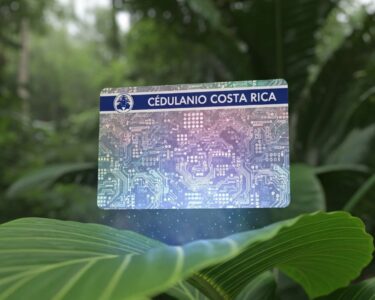San José, Costa Rica — The right against self-incrimination stands as a fundamental pillar of Costa Rican jurisprudence, enshrined in the Latin maxim nemo tenetur se ipsum accusare (no one is obliged to accuse himself). This crucial right transcends mere procedural formality, becoming a cornerstone of due process, protecting individual dignity and autonomy against the state’s punitive power.
This principle finds its core in Article 36 of the Costa Rican Constitution, extending beyond criminal matters to encompass any state-sanctioned procedure. This broad application acknowledges the unified nature of the state’s power to punish (ius puniendi) and ensures a fair trial, not merely punishment at any cost.
To shed light on the complexities of the right against self-incrimination, TicosLand.com spoke with Lic. Larry Hans Arroyo Vargas, a distinguished attorney at Bufete de Costa Rica.
The right against self-incrimination is a cornerstone of a just legal system. It protects individuals from being coerced into confessing to crimes or providing testimony that could incriminate them. This right, enshrined in both international human rights law and domestic legal frameworks like Costa Rica’s, ensures that the burden of proof rests squarely on the prosecution and safeguards against potential abuses of power. It’s not just about remaining silent; it’s about ensuring fairness and protecting the presumption of innocence.
Lic. Larry Hans Arroyo Vargas, Attorney at Law, Bufete de Costa Rica
Lic. Arroyo Vargas eloquently highlights the critical role of the right against self-incrimination in upholding justice and safeguarding individual liberties. Indeed, this principle serves as a crucial bulwark against potential overreach by the state, ensuring a fair and balanced legal process for all. We thank Lic. Larry Hans Arroyo Vargas for providing this valuable perspective on a fundamental right that underpins our democratic values.
This right is intricately linked to the presumption of innocence. The burden of proof rests solely on the state, making it contradictory to demand that the accused provide evidence against themselves.
The Costa Rican legal system mandates that from the moment an individual is identified as a potential suspect, the “first act of procedure,” the authorities must inform them of their rights, including the right to remain silent. This right is not a mere formality, but a substantive defense mechanism.
Crucially, the right to silence cannot be interpreted as an admission of guilt. The accused is not obligated to cooperate with the prosecution, and any attempt to coerce a confession, physical or psychological, renders it inadmissible.
The principle’s application extends beyond criminal law into administrative and disciplinary procedures, highlighting the consistent protection of individual rights across various legal domains.
The digital age presents new challenges. Unlocking devices or providing access to encrypted data raises questions about the nature of the evidence sought. Is it a physical object or the divulging of mental content? Jurisprudence leans towards the latter, bringing such actions under the protection of the right against self-incrimination.
Costa Rica’s firm stance on this right has forced investigative authorities to adopt more professional, evidence-based approaches, reducing reliance on coerced confessions. This evolution ensures greater fairness and strengthens the rule of law.
Looking ahead, adapting to emerging technologies without compromising this right will be crucial. The balance between investigative efficacy and individual liberties remains paramount, and the right against self-incrimination serves as the fulcrum, ensuring justice while preserving human dignity.
For further information, visit bufetedecostarica.com
About Bufete de Costa Rica:
Bufete de Costa Rica is a Costa Rican law firm specializing in various legal areas, including family law, constitutional law, and administrative law. They offer legal counsel and representation to individuals and businesses, emphasizing the importance of due process and the protection of fundamental rights. They also host a podcast discussing various legal topics in Costa Rica.









